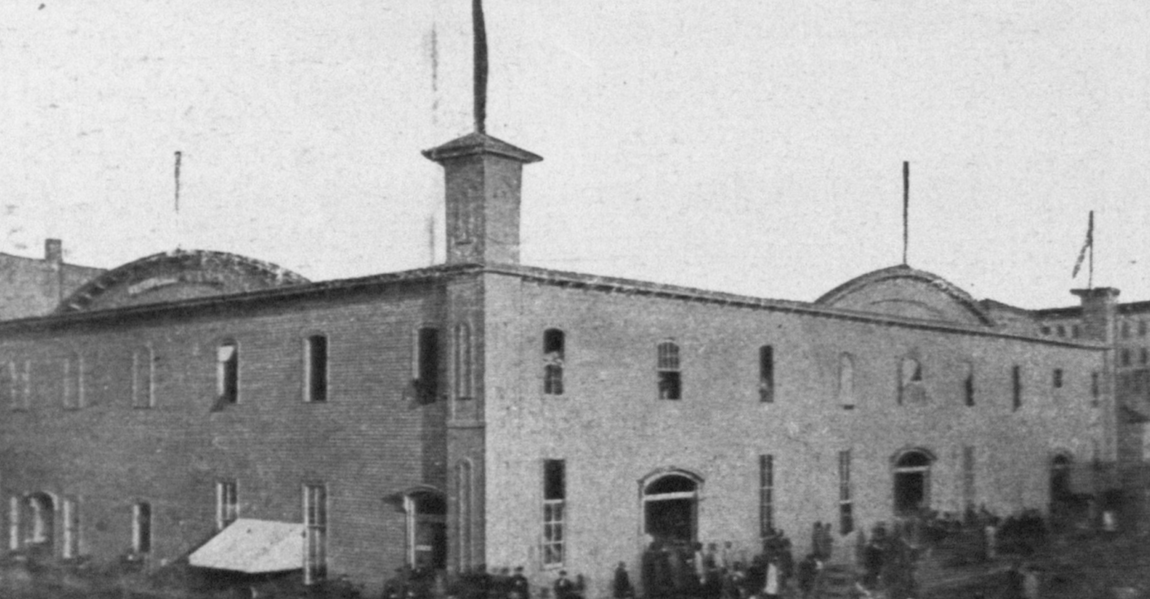This article describes Abraham Lincoln's improbable selection at the landmark Republican National Convention of 1860 in Chicago.

The Wigwam building that hosted the Republican National Convention of 1860
Held in Chicago from May 16 to May 18, 1860, the Republican National Convention marked the culmination of years of political turmoil and ideological struggle. It was the first time a major political convention was held in what was the western frontier.
Who Were the Republicans?
The Republican Party, founded in the 1850s as an anti-slavery coalition, had rapidly emerged as a major political force in the years leading up to the Civil War. Comprising former Whigs, Free Soilers, abolitionists, and anti-slavery Democrats, the Republican Party represented a broad-based movement united in opposition to the expansion of slavery into new territories.
What was the Purpose of the Convention?
The Republican National Convention of 1860 was charged with the task of selecting the party's nominee for the presidency and crafting a platform that reflected the party's principles and priorities. Delegates from 25 states, representing a diverse array of interests and ideologies, descended upon Chicago to participate in this historic gathering.
Who Were the Candidates?
One of the central issues facing the convention was the selection of the party's presidential nominee. Several prominent figures, including William H. Seward of New York, Salmon P. Chase of Ohio, and Abraham Lincoln of Illinois, emerged as frontrunners for the nomination.
After several rounds of balloting, Abraham Lincoln emerged as the Republican Party's nominee for president, securing the nomination on the third ballot. Lincoln, a self-educated lawyer from Illinois, had risen to prominence in the Republican Party through his eloquent speeches, steadfast opposition to slavery, and moral clarity on the issue of human freedom. The selection of Lincoln as the Republican nominee marked a significant turning point in American politics. As a relatively unknown figure outside of Illinois, Lincoln's nomination surprised many political observers who had expected a more established figure like Seward or Chase to secure the nomination. Seward and Chase, however, has factors working against them at the convention:
Divided Support: Both Seward and Chase were prominent figures within the Republican Party and had strong support bases. However, their support was divided among various factions within the party, making it difficult for either candidate to secure a majority of delegates on the early ballots.
Radicalism vs. Moderation: Seward and Chase were seen as representing different wings of the Republican Party. Seward, a former governor of New York and a leading figure in the anti-slavery movement, was perceived as a more radical candidate due to his outspoken views on the issue of slavery. Chase, on the other hand, was a moderate who had served as governor of Ohio and later as Treasury Secretary under President Lincoln. Some Republicans feared that nominating a radical like Seward could alienate moderate voters and jeopardize the party's chances in the general election.
Backroom Deals: The Republican National Convention was not immune to the influence of backroom deals and political maneuvering. Delegates were swayed by a variety of factors, including promises of patronage, personal loyalties, and strategic alliances. It's possible that Seward and Chase were unable to secure enough support from key delegates or failed to make the necessary concessions to win over undecided delegates.
Lincoln's Appeal: Abraham Lincoln, the eventual nominee, emerged as a compromise candidate who was able to bridge the divide between different factions within the party. Lincoln was relatively unknown outside of Illinois but had a reputation as a skilled orator and a principled opponent of slavery. His humble origins and moderate stance on the issue of slavery made him an appealing choice for delegates seeking a candidate who could unite the party and appeal to a broad base of voters.
Political Strategy: Lincoln's campaign employed a strategic approach to securing the nomination, focusing on building support among key delegates in crucial states and capitalizing on his image as a unifying figure within the party. Lincoln's campaign team, led by figures like David Davis, worked behind the scenes to sway undecided delegates and undercut support for Seward and Chase.
Related activities
Advertisement

